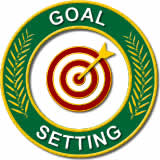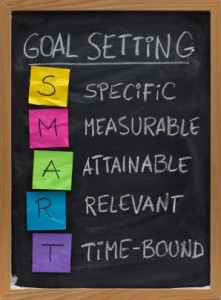How to Measure Your Child’s Progress
When your child first began speech therapy, you should have received a comprehensive treatment plan from the speech-language pathologist (SLP). You should also periodically receive progress reports, either written or verbal. If the SLP has so far provided you with neither of these, ask for them as soon as possible. The point of speech therapy is to help your child improve his communication skills. The best way to ensure that he is improving is to evaluate whether he has met measurable goals.
Setting Goals
Taking a step back, before you can evaluate your child’s progress, you and the SLP must first set measurable goals. Make sure that all goals are specific and tailored to your child’s individual needs. In general, a goal should specifically indicate the date at which it should be met and the specific issue or skill that it addresses or improves. The goal statement may also indicate how the goal is going to be accomplished. Categorize your child’s goals into long-term and short-term accomplishments.
Long-Term Goals
First, set an annual goal for your child with the help of his SLP. You can also consult your child’s written treatment plan to develop an annual goal. An example of an annual goal might be something like, “Sally will acquire and use 75 percent more vocabulary words than she is currently using by the end of a 12-month period in order to communicate her basic needs and wants.”
Short-Term Goals
In order to meet this long-term goal, you and your child’s SLP should break it down into smaller objectives. For example, the first short-term goal might be something like, “Sally will identify objects by pointing at the correct object when the SLP states the object’s name by the end of the month.” The next short-term goal might be, “Sally will state the name of the object when the SLP holds it up.”
Following these goal examples, Sally will progress to attributing appropriate descriptive words to objects in terms of their colors, shapes, and functions. Once Sally has mastered these skills, your next set of goals might address the formation of complete sentences to describe objects, etc.
Evaluation
In addition to writing down measurable goals, talk to the SLP about evaluation procedures and progress reports. Periodically, expect to receive progress reports detailing the specific steps that your child is making toward reaching his goals. If your child works with a speech therapist in his school, his periodic evaluations may include teacher observations and exam grades. Make sure that you and the SLP are on the same page regarding how often the progress reports will be available. If your child works with a school-based SLP, expect to receive progress reports at least quarterly, or at the same rate as other children who do not work with the SLP.





